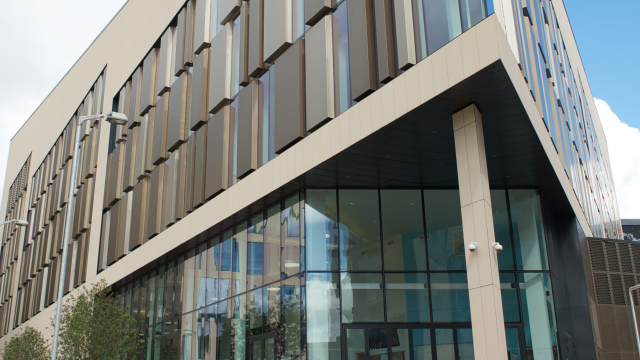Fourteen organisations across the UK will work in partnership for the project led by Fraunhofer’s Centre for Applied Photonics (CAP), based at the University of Strathclyde in Glasgow.
The team will use the properties of atoms and subatomic particles to increase the reliability of laser components and systems while reducing their size, weight, power consumption and cost.
Simon Andrews, Fraunhofer UK research executive director, said: “This collaboration will revolutionise quantum technology and take it to another level of practicality.
“That sheer scale in the dimensions with which we’re working is extremely exciting and we’re delighted to be part of creating an advanced supply chain for a key technology which plays an increasingly significant role in our everyday lives.”
Our contribution will be based on our unique capability to mechanically assemble chip-scale structures with nanoscale precision
Quantum technology is already used in areas such as navigation, communications, computing and healthcare, but the partners – half of whom are based in Scotland – hope to encourage more organisations and industries to adopt it.
The University of Strathclyde is also a partner in the project.
Michael Strain, of the university’s department of physics, will lead the contribution to the programme alongside Professor Martin Dawson.
He said: “The Institute of Photonics is delighted to support the university’s strategic partner, Fraunhofer CAP/UK, and its range of industrial partners, in the tremendously exciting and ambitious QT-Assemble programme.
“Our contribution will be based on our unique capability to mechanically assemble chip-scale structures with nanoscale precision.”
Fraunhofer physicists are joined on the team by representatives from the University of Southampton as well as the companies INEX Microtechnology, PowerPhotonic, Gooch and Housego (Torquay), Photon Force, ColdQuanta UK, UniKLasers, Covesion, RedWave Labs, Caledonian Photonics, Alter Technology Tuv Nord UK and AegiQ.
The project is funded by the UK Quantum Technologies Challenge, led by UK Research and Innovation.
Roger McKinlay, challenge director, said: “The assembly and integration processes addressed by this project are not only essential for the creation of new quantum products but are rich in the know-how through which the UK will establish a strong internationally competitive position.”







